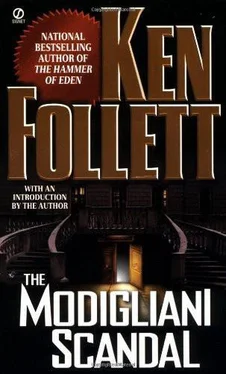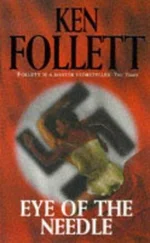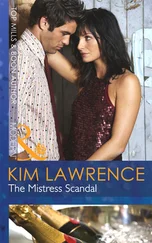Willow got up and left the room. He went to his own office and sat down by the telephone. He picked up the receiver—then paused, and smiled to himself.
″I think you′ve redeemed yourself, Willow,ʺ he said quietly.
Willow walked into Lampeth′s office with an evening newspaper in his hand. ″It seems it′s all over, Lampeth,″ he said. ″Jankers has told the press that all the agreements are signed.″
Lampeth looked at his watch. ʺTime for a gin,″ he said. ″Have one?″
″Please.″
Lampeth opened the cabinet and poured gin into two glasses. ″As for its being all over, I′m not sure. We haven′t got our money yet.″ He opened a bottle of tonic and poured half into each glass.
″Oh, weʹll get the money. The forgers would hardly have bothered to set this up just to cause trouble. Besides, the sooner they give us the cash, the sooner the police lay off.ʺ
″It′s not just the money.″ Lampeth sat down heavily and swallowed half his drink. ″It will be years before the art world recovers from a blow like this. The public now thinks we′re all frauds who don′t know the difference between a masterpiece and a seaside postcard.″
″I must say, er ... ʺ Willow hesitated.
″Well?″
″I can′t help feeling they have proved a point. Quite what it is I don′t know. But something very profound.″
″On the contrary—itʹs simple. They′ve proved that the high prices paid for great works of art reflect snobbery rather than artistic appreciation. We all knew that already. They′ve proved that a real Pissarro is worth no more than an expert copy. Well, it′s the public who inflate the price, not the dealers.″
Willow smiled and gazed out of the window. ″I know. Still, we make our percentage on the inflation.″
″What do they expect? We couldn′t make a living out of fifty-pound canvases.″
″Woolworth′s do.″
″And look at the quality of their stuff. No, Willow. The forger may have his heart in the right place, but he won′t change anything. We lose prestige for a while—a long while, I expect—but before too long everything will be back to normal, simply because that is the way it has to be.″
″I′ve no doubt you′re right,″ said Willow. He finished his drink. ″Well, they′re closing up downstairs. Are you ready to go?″
″Yes.″ Lampeth stood up, and Willow helped him on with his coat. ″By the way, what did the police say in the paper?″
ʺThey said that since the complaints had been withdrawn, they had no option but to suspend inquiries. But they gave the impression they would still like to get hold of Renalle.″
Lampeth walked out of the door and Willow followed him. Lampeth said: ″I don′t think weʹll ever hear from Renalle again.″
The two men were silent as they walked down the stairs and through the empty gallery. Lampeth looked out of the windows and said: ″My car′s not here yet. Look at the rain.″
ʺIʹll press on.″
″No, wait. I′ll give you a lift. We must talk about the Modigliani exhibition. We haven′t had time these last few days.″
Willow pointed across the gallery. ″Somebody′s left their shopping,ʺ he said.
Lampeth looked. In a comer, underneath a rather poor charcoal drawing, were two large Sainsbury′s tote bags. A carton of soap powder stuck out of the top of one. Willow walked over and looked more closely.
He said: ″I suppose we ought to be careful in these days of bag bombs. Do you think the IRA consider us a target?″
Lampeth laughed. ″I don′t think they use Fairy Snow in their bombs.″ He crossed over the room, and hefted one of the bags.
The wet paper broke, and the contents of the bag spilled over the floor. Willow gave a grunt of exclamation and bent down.
Beneath the soap powder and lettuce was a bundle wrapped in newspaper. Inside the newspaper was a pile of stiff cards and sheets of heavyweight paper. Willow sorted through and examined a few.
″They′re stocks and bonds,″ he said finally. ″Open-faced securities—certificates of ownership, negotiable on signature. I′ve never seen so much money in all my life.″
Lampeth smiled. ″The forger paid up,″ he said. ″The deal is done. I suppose we ought to tell the newspapers.″ He stared at the securities for a moment. ʺHalf a million pounds,″ he said quietly. ″Do you realize, Willow—if you snatched those bags and ran away now, you could live well for the rest of your life in South America?″
Willow was about to reply when the gallery door opened.
″I′m afraid we′re closed,″ Lampeth called out.
A man came in. ″It′s all right, Mr. Lampeth,″ he said. ″My name′s Louis Broom—we met the other day. I′ve had a call to say that the half-a-million has been paid back. Is that true?″
Lampeth looked at Willow, and they both smiled. Lampeth said: ″Goodbye, South America.″
Willow shook his head in awe. ″I have to hand it to our friend Renalle. He thought of everything.″
IV
JULIAN DROVE SLOWLY THROUGH the quiet Dorset village, steering the hired Cortina carefully along the narrow road. All he had by way of an address was Gaston Moore, Dunroamin, Cramford. Dunroamin! It was a mystery how the most discriminating art expert in the country could have called his retirement home such a banal name. Perhaps it was a joke.
Moore was certainly eccentric. He refused to come to London, he had no telephone, and he never answered letters. When the bigwigs of the art world required his services, they had to trek down to this village and knock on his door. And they had to pay his fees in crisp one-pound notes. Moore had no bank account.
There never seemed to be anyone around in villages, Julian reflected. He turned a bend and braked hard. A herd of cattle was crossing the road. He killed the engine and got out. He would ask the cowhand.
He expected to see a young man with a pudding-basin haircut chewing a stalk of grass. The cowhand was young; but he had a trendy haircut, a pink sweater, and purple trousers tucked into his Wellington boots.
The man said: ″You lookinʹ for the painter man?″ The accent was a pleasantly rich burr.
″How did you guess?″ Julian wondered aloud.
″Most furriners want ′un.″ The cowhand pointed. ″Back the way you come, turn down the road by the white house. ʺTis a bungalow.″
ʺThank you.″ Julian got back into the car and reversed down the road until he reached the white house. There was a rutted track beside it. He followed the track until he reached a wide gate. ʺDunroamin″ was written in faded Gothic lettering on the peeling white paintwork.
Julian patted his pocket to make sure the wad of notes was still there; then he took the carefully packed painting from the backseat and maneuvered it out of the car. He opened the gate and walked up the short path to the door.
Moore′s home was a pair of ancient thatched workingmen′s cottages which had been knocked into one. The roof was low, the windows small and leaded, the mortar between the stones crumbling. Julian would not have called it a bungalow.
His knock was answered, after a long wait, by a bent man with a cane. He had a shock of white hair, thick-lensed spectacles, and a birdlike tilt to his head.
″Mr. Moore?″ Julian said.
″What if it is?″ the man replied in a Yorkshire accent.
ʺJulian Black, of the Black Gallery. I wonder if you would authenticate a picture for me.″
ʺDid you bring cash?″ Moore was still holding the door, as if ready to slam it.
″I did.″
″Come on then.″ He led the way inside the house. ″Mind your head,″ he said unnecessarily—julian was too short to be bothered by the low beams.
The living room seemed to occupy most of one of the cottages. It was crammed with oldish furniture, among which a brand-new, very big color television stuck out like a sore thumb. It smelled of cats and varnish.
Читать дальше












